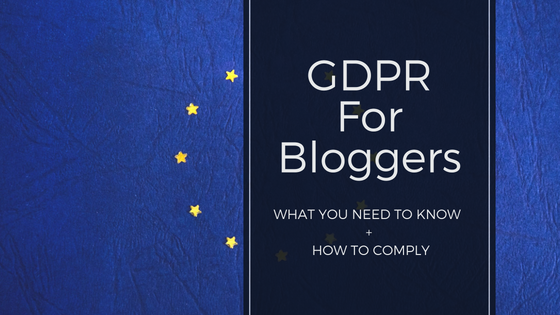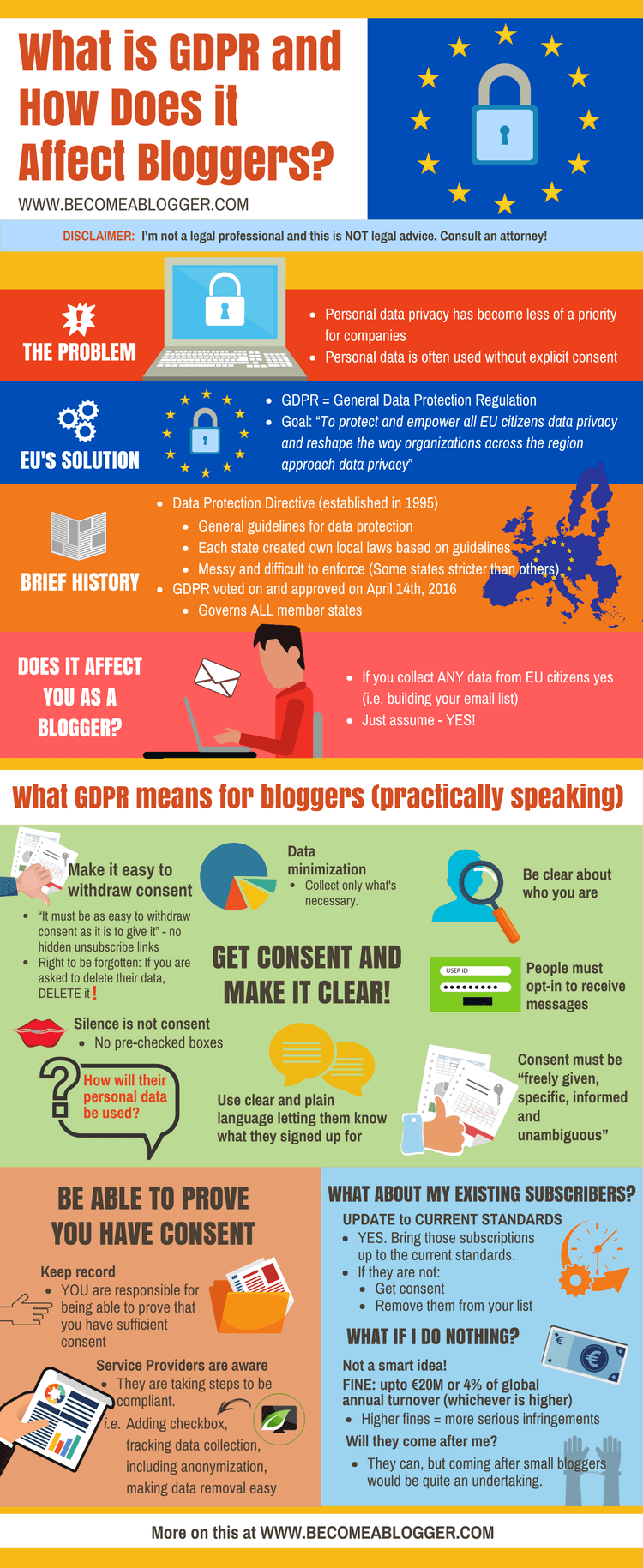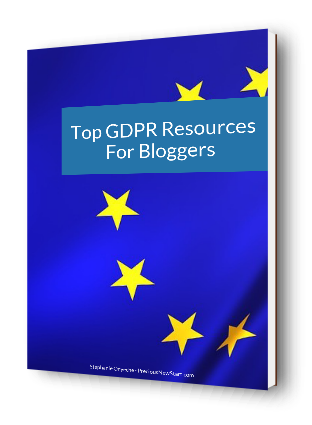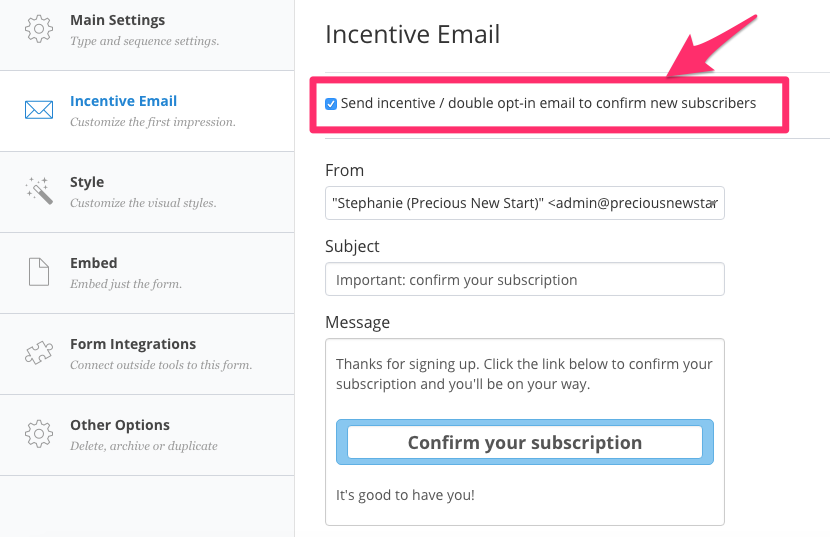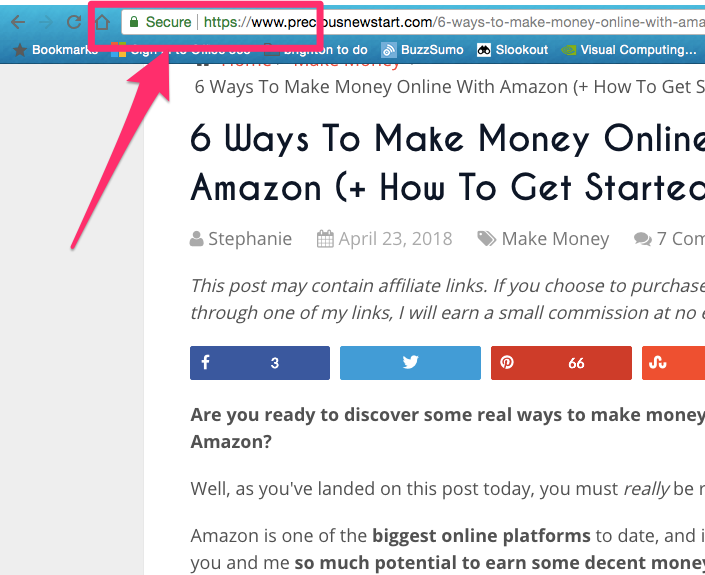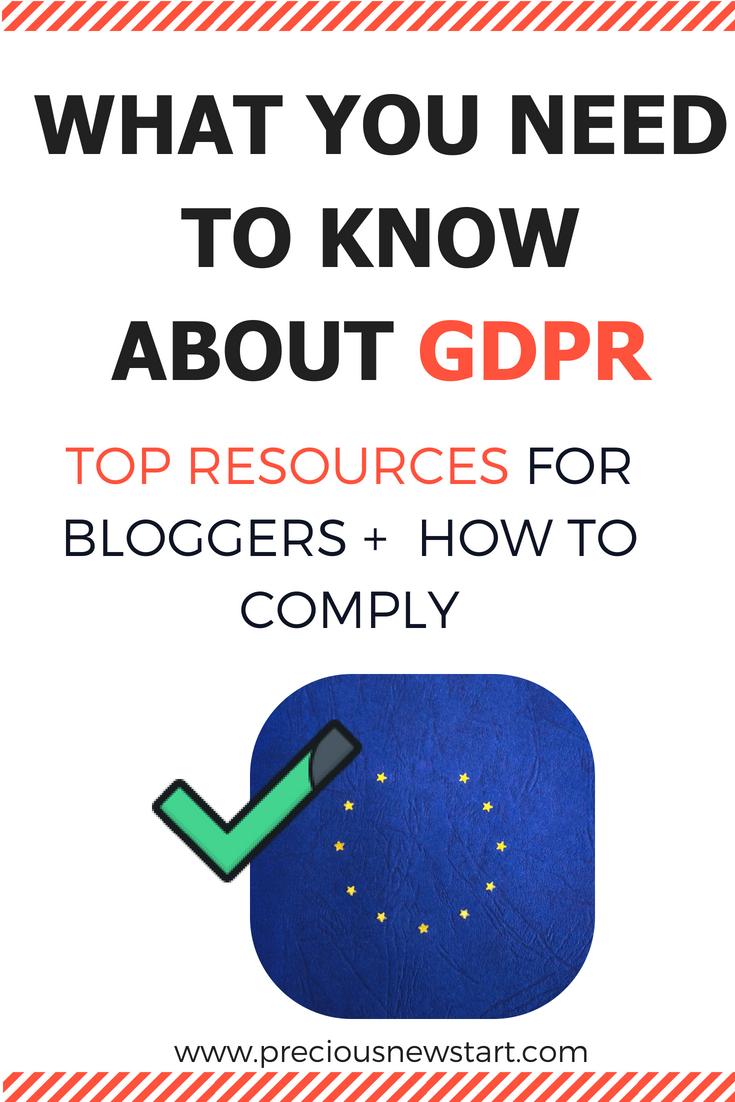GDPR for Bloggers: What You Need To Know + How To Comply
This post may contain affiliate links. If you choose to purchase something through one of my links, I will earn a small commission at no extra cost to you.
Have you landed on this page trying to figure out what all this GDPR talk is about, and whether it affects you?
Good news...
This post is designed to:
- Help you understand about GDPR for bloggers
- Direct you to some of the best guides & resources online
- And guide you through some of the important steps you must take to ensure you're compliant with the new regulations.
Here's a brief look at what you can expect from this GDPR for bloggers article:
Want To Read This Later? Enter Your Best Email For The "Top GDPR Resources For Bloggers" PDF!
More...
What Is GDPR?
GDPR stands for General Data Protection Regulation, and according to the official website:
The aim of the GDPR is to protect all EU citizens from privacy and data breaches in an increasingly data-driven world.
This essentially means that it gives individuals more privacy and control over how their data is used.
The deadline for making sure your website is GDPR ready is 25 May, 2018.
What Does It Mean For Bloggers?
If you're a blogger that collects any data from EU readers, such as an email address, then you need to comply with these regulations.
Whether you are inside or out of the EU, these regulations apply to any organisation who is marketing goods or services to EU citizens, and/or tracking their behaviours.
Even if your content is not geared towards an EU audience, there's still a chance an EU citizen can visit your site, purchase a product and/or join your email list. Therefore, you should make these changes to your blog before the deadline.
GDPR For Bloggers [INFOGRAPHIC]
Here's a really useful infographic I came across that might help you understand GDPR for bloggers in clearer detail.
Best GDPR Resources For Bloggers
In addition to the infographic above, I wanted to share a few additional in-depth resources I stumbled upon when researching about GDPR for bloggers:
- Basic Guides:
- GDPR explained in 5 minutes by CoreDNA
- Bloggers: Do These 10 Things To Comply With GDPR by Tots100
- What is GDPR and How Does It Affect Bloggers? by Leslie Samuel (becomeablogger.com)
- Legal aspects of GDPR + Privacy Policy Template by Jenny-Marie (jenny-marie.co.uk)
- GDPR Training
- FREE: How To Comply With GDPR with Bobby Klinck (youronlinegenius.com)
- GDPR WordPress Plugins
- Podcasts:
- GDPR Basics With Zoe Findon
- GDPR For Entrepreneurs - Amy Portfield
- Videos:
4 Quick Ways To Make Your Blog GDPR Compliant
So, now that you've understood the importance of GDPR for bloggers, I wanted to share 4 quick ways to help you make your blog compliant with GDPR.
1) Double opt-in
A double opt-in is a way for getting new subscribers to confirm their subscription to your email list. Ultimately it ensures that your readers actively want to be on your list.
Looking at the screenshot below you'll see how I'm able to add a double opt-in option for my opt-in forms using Convertkit.
Many of the top email marketing services (EMS) will have the option to include this on your opt-in forms. You can usually figure this out which a quick google search "[Name of EMS] + double opt-in".
Not only that...but according to Convertkit, subscribers who confirm their subscription are more likely to open your emails in the long run. So it definitely has it's advantages.
So, if you're building a list, which you should be, then be sure to add double opt-in to your forms.
2) Website cookies
Use a cookie plugin such as Cookie Notice or GDPR Cookie Compliance.
This is important because, according to the GDPR, a user must actively opt-in and consent to the use of cookies, and they should not be forced to accept cookies.
3) GDPR Privacy Policy
It's important to have a Privacy Policy within your website, especially one that outlines how data is stored.
You can take a look at the Privacy Policy available on this blog as an example.
4) Ensure your site is secured
Having a site that's secure with an SSL (Secure Sockets Layer) Certificate is not only beneficial for search engine rankings, but is now an important requirement from Google. Google is currently "punishing" sites who do not move over to SSL.
Ultimately, in regards to GDPR, having an SSL certificate on your site ensures that any data collected on your website is protected and secure.
So rather than having the http:// prefix, your site should have https://.
How to get an SSL certificate for your blog:
- With SiteDomains you can get free SSL certificates on all domain names you purchase.
- If you choose not to purchase through SiteDomains, or you already have a domain, you can contact your domain or hosting provider for an SSL certificate. (You may have to pay an additional fee for this.)
- SSL for FREE - Using this guide by Elegant Themes, you could potentially install an SSL certificate on your site, for free.
My Final Thoughts On GDPR For Bloggers
GDPR is not something to be ignored as it can lead to hefty fines if you are not compliant.
However, I hope this article has given you a better understanding of GDPR for bloggers, and guided you to some relevant in-depth resources to help you get GDPR ready by 25th May, 2018.

